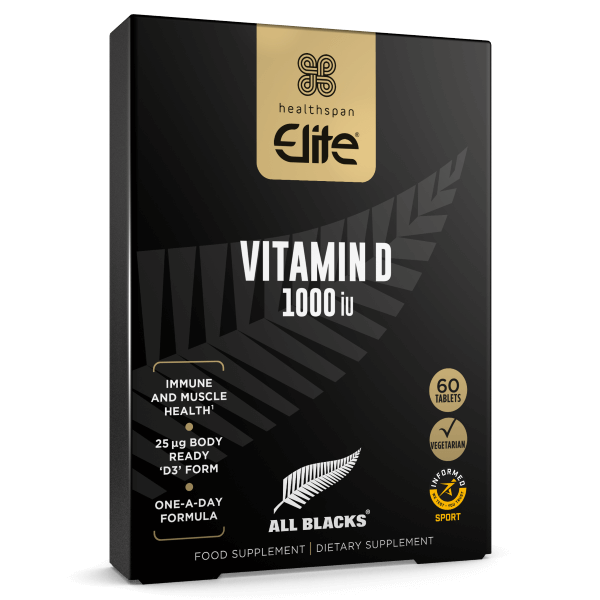Vitamin D is one of the most important nutrients to have in abundance, mainly due to the vast number of health benefits it can provide. The sporting community has become increasingly interested in vitamin D, with many athletes now advised to include a daily vitamin D supplement in their diets.
Vitamin D Deficiency
There is a growing amount of evidence, including a study I published in 2012 (Close et al, 2012), to suggest that many athletes are vitamin D-deficient, especially during the winter months. Other reports around the world have shown similar results, suggesting that vitamin D deficiency and insufficiency is widespread among athletic communities.
Although the consequences of such deficiencies are still unclear, impaired muscle function and reduced regenerative capacity, impaired immune function, poor bone health and impaired cardiovascular function have all been associated with vitamin D- deficient athletes. All these factors can have a detrimental impact on performance, so making sure you have a daily source of vitamin D is essential.
Sources of Vitamin D
Vitamin D synthesis, the process vitamin D goes through for it to be effective within the body, is activated through the reaction of the skin's dermis with ultraviolet B radiation, which forms vitamin D3. Skin pigmentation can have an impact on the effectiveness of vitamin D synthesis, as melanin competes with this process for UVB radiation. This means that those with darker skin require exposure for longer or to a stronger source of UVB radiation to reach the same levels as those with lighter skin.
An alternative route to obtaining vitamin D is through the diet. Foods that provide vitamin D include oily fish, eggs, fortified breakfast cereals, mushrooms and powdered milk. However, large-scale investigations identified that less than 2% of individuals meet the recommended daily allowance from foods. In addition, unlike vitamin D synthesis, that solely produces vitamin D3, dietary intakes provide both vitamin D2 and vitamin D3. There is a huge difference in effectiveness between these two sources; quite simply vitamin D3 is 87% more potent in overcoming a deficiency and is the body's naturally preferred form.
Vitamin D Supplements
Supplementation is an incredibly effective way of providing the necessary levels of vitamin D. However, in a similar way to foods, supplements can come in the vitamin D2 or vitamin D3 form, so it is important to make sure to choose a supplement that contains vitamin D3.
Regarding dosage: in a previous study I have shown that 5,000 International Units (IU) per day over an 8-week period can overcome a deficiency and maintain sufficient levels of vitamin D (Close and Russell, et al., 2013). However, it is vitally important to remember that vitamin D synthesis via UVB exposure still occurs. For this reason, the US Institute of Medicine has set the tolerable upper intake at 4,000 IU, the same as the guidance set by the European Food Safety Authority, so it is recommended that you choose a supplement with a maximum dose of 4,000 IU per day.

All Blacks Vitamin D 1000iu
The sunshine vitamin: an essential nutrient that supports your immune health and normal muscles and bones
- Supports your immune, muscle and bone health
- 1000iu (25mcg) of vitamin D3, the body-ready form
- One-a-day formulation, suitable for vegetarians









